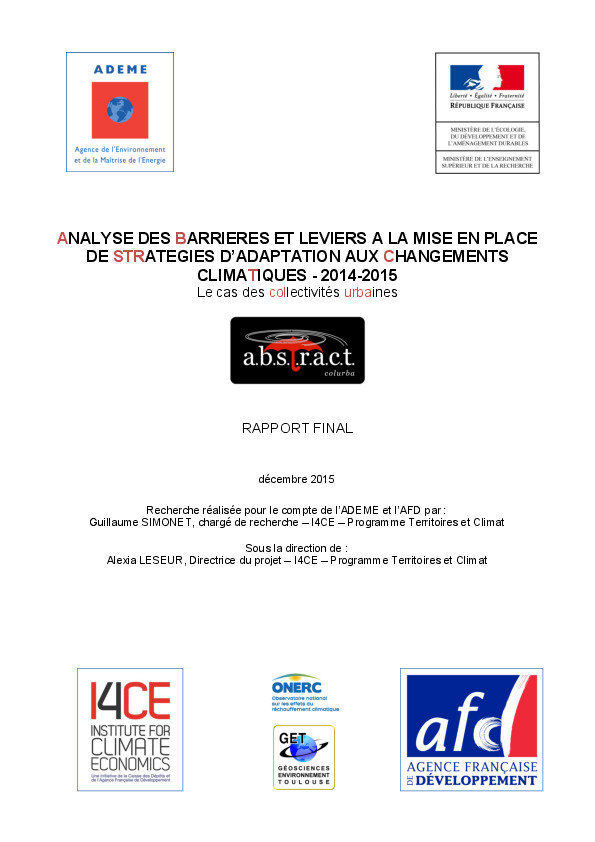Final Report for ABSTRACT-Colurba is out
CONTEXT : The scientific literature on barriers and levers to the implementation of adaptation strategies to climate change is quickly growing. Indeed, the evolution of climate variables and the changes in the intensity, duration and frequency of extreme events are pushing policy makers to question their ability to adjust urban areas to these new conditions. Therefore, a wide range of adaptation options is available, but the barriers to their implementation are not all known and take many forms, ranging from cognitive obstacles to economic or organizational ones. In this emerging research theme, the humanities and social sciences are contributing to increase scientific knowledge and to support decision-making with new methodological and conceptual elements.
APPROACH AND METHODOLOGY: The project was co-built with all stakeholders and is based on 110 respondents (66 interviews, 35 workshop participants) using qualitative and lexicometric analysis. Selection criteria of local authorities: 1) Actively Engaged in a Territorial Climate Energy Plan; 2) “Intermediate” size (ranging from 30,000 to 500,000 inhabitants with a regional influence and a intermediation role at territorial scale); 3) Diversity of issues (geographical, structure, socio-economic).
Please quote the report :
Simonet, G., Leseur, A., (2015). Analysis of levers and Barriers to the implementation of adaptation STRAtegies to ClimaTe change – The urban & local authority case, research project under the guidance of I4CE, ADEME and AFD with the participation of ONERC, Final report, 140 p.
Contact : simonet.guillaume@ymail.com and alexia.leseur@i4CE.org
The project deliverables are available to download :
